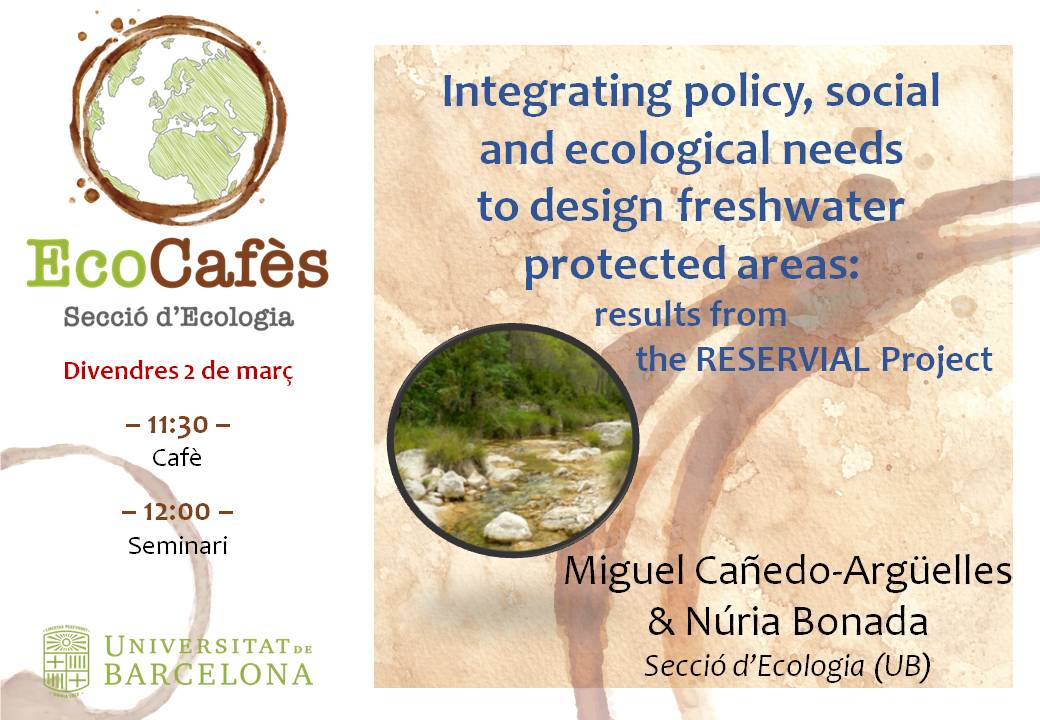Envia el teu anunci
Dates:
Horari:
Lloc:
Afegeix-ho a l'agenda (iCal)
Aquest divendres tindrem amb nosaltres Miguel Cañedo-Argüelles & Núria Bonada (Secció d'Ecologia) que ens parlaran de: «Integrating policy, social and ecological needs to design freshwater protected areas: results from the RESERVIAL Project».
El seminari es farà en anglès.
Resum
In 2005 the Spanish authorities declared a set of river protected areas with the aim of “preserving those rivers subjected to low or none human pressure”. This resulted in a network of a reduced number of protected reaches mainly composed by headwater streams with high ecological status. Now, several questions arise: what are these areas meant to preserve? Will they achieve its conservation goals? These questions are much easier to answer when systematic conservation-planning tools (SCPT) are applied. We applied these tools in the Ebro River basin (Spain) due to its heterogeneity in terms of environmental conditions and river types, the availability of public data and the multiple social conflicts that exist. Our aim was to compare the current network of protected areas with a network designed following socioeconomic and ecological criteria using SCPT. Firstly, we conducted workshops with a wide variety of actors (e.g. government agencies, NGOs, researchers) to set our conservation goals (i.e. what should be protected?). Secondly, we defined our planning units and modelled the spatial distribution of biodiversity (i.e. algae, macrophytes, macroinvertebrates and fish) throughout the catchment using environmental data, land-use attributes and other relevant topographical and climatic variables as predictors. Finally, we designed a network of protected areas that met our conservation goals using complementary algorithms in the free software MARXAN. In this presentation we will use our results to discuss key questions concerning freshwater conservation: what do we need to preserve? How should we do it? Are scientists aligned with the rest of society in their concerns? How do different stakeholders understand rivers and their associated goods and services? Answering these questions is urgently needed if we want to slow down the accelerating freshwater species extinction rate.

